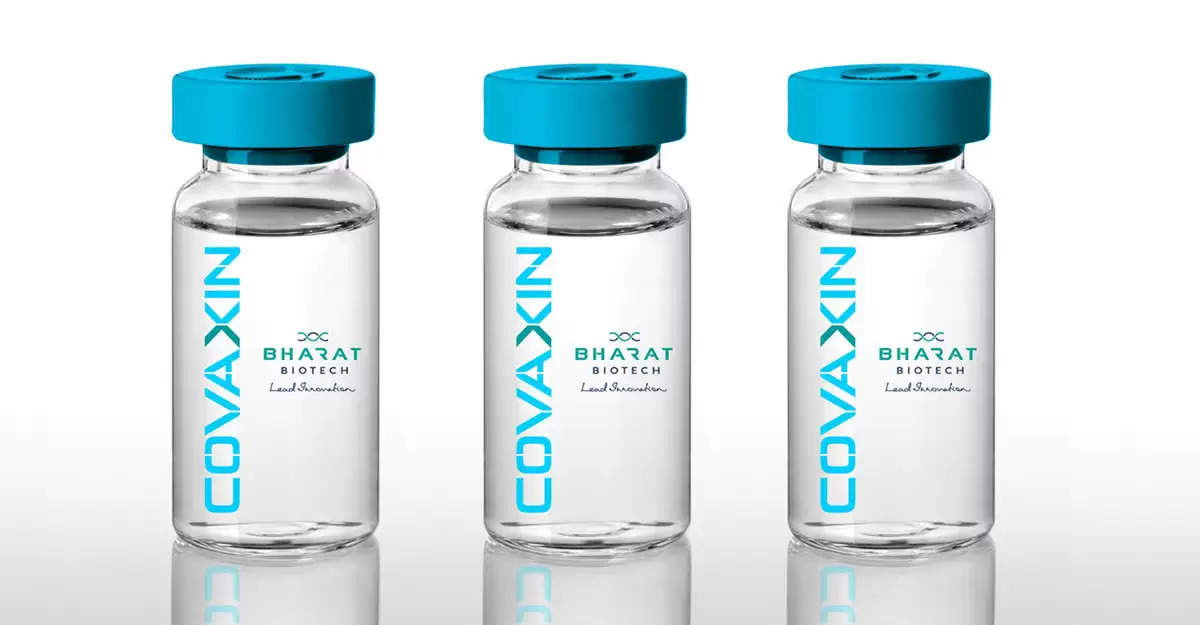On the Covaxin, a WHO official said, "We Trust Indian Industry and Bharat Biotech Has Been Submitting Data Regularly."

A top official of the World Health Organization said on Thursday that India's Bharat Biotech has been submitting data on the EUL of Covaxin to a technical committee that hopes to make a final recommendation to the WHO next week, stressing that the UN body "trusts" the Indian industry that produces high-quality vaccines. On April 19, Bharat Biotech, based in Hyderabad, submitted an EOI (Expression of Interest) to the World Health Organization for the vaccine's Emergency Use Listing (EUL).
A UN technical advisory panel meeting on Tuesday requested "further clarifications" from Bharat Biotech in order for Covaxin to complete a final risk-benefit evaluation for the vaccine's Emergency Use Listing.
"Let me highlight that Bharat has been providing data frequently and quite rapidly," Dr. Mariangela Simao, WHO Assistant Director-General for Access to Medicines and Health Products, said at a news conference in Geneva. She was responding to a question about why Covaxin was denied an Emergency Use Listing whereas Chinese vaccines Sinopharm and Sinovac were approved despite a lack of data. When the technical advisory group convened on October 26 to examine the EUL for Covaxin, Simao said they requested Bharat Biotech for more information. On November 2, the technical advisory committee will meet again.
WHO is in contact with Bharat Biotech, according to her, and they have "daily chats, calls, and meetings defining what more data is needed" to be given to the technical expert panel. Let me just clarify, and without naming any specific company, we examined an Indian factory earlier this year, and it took 30 days, she added, referring to the Serum Institute of India, which produces the AstraZeneca Covishield vaccine.
"So it's not a question of going faster with one vaccine or the other. We have complete faith in the Indian industry. India manufactures the vast majority of high-quality vaccinations in the globe. We are currently in the last stages of this external advisory group's evaluation, and we expect to have a final recommendation to the WHO next week. I trust you've grasped what I'm saying. She went on to say that it's critical to emphasize that the WHO's process for producing the Emergency Use Listing is very transparent, with no secrets involved save for any confidential information.
"Everything else," she continued, "is independent of whether country manufactures the vaccine," adding that the process is based on the highest international standards possible. Simao also mentioned that if WHO hasn't inspected the manufacturer in a while, it may be required to do so. "It wasn't Bharat's case." We didn't need to check Bharat, she explained, because once the manufacturer has submitted all of the data to WHO, it is assessed by an external Technical Advisory Group, which consists of experts from six different nationalities who examine all of the data collected by WHO.
She added that the panel had also requested more clarifications in the case of the two Chinese vaccinations and that the whole process was followed to examine the Chinese vaccines. She claimed that one of the Chinese vaccinations received Emergency Use Listing one month after the initial technical advisory group meeting, and the second vaccine received EUL six weeks later. WHO is now evaluating eight vaccine candidates, including Bharat Biotech's Covaxin, according to Simao. Bharat Biotech, she added, began the rolling submission process on July 6. We are considering this as a major priority, and teams are working on it 24 hours a day, seven days a week.
Dr. Bruce Aylward, Senior Advisor to WHO Director-General Dr. Tedros Adhanom Ghebreyesus, responded to the Covaxin query by saying that in the difficult situation that we are all working under in this pandemic, it is critical that the information we use and distribute is correct. And we just want to point out, for the record, that the way the issue was portrayed contained a lot of mistakes. He went on to say that the actual EUL dates, as well as the process, are all publicly available on the WHO website.
We've made a commitment at the top of the organization, led by the Director-General, to get these processes forward as quickly as feasible. But, to be clear, the schedule for EULing a vaccine is 99 percent contingent on the producers' ability to deliver data to the independent groups that assess for WHO, as well as the speed and thoroughness with which they can do so. We just want to be crystal clear about that. WHO's a job, according to Aylward, is to save as many lives as possible as quickly as feasible. This includes making certain that no product is left unused.
While the organization does everything, he explained, we rely on manufacturers, regulatory agencies, and others with whom we collaborate to ensure that they have the information they need to make those decisions. We must ensure that the items are both safe and effective, as well as of the highest possible quality. And while this takes some time, it is necessary for global security. One of the causes for the high level of stress experienced by persons who have received vaccines that have not yet been approved by WHO or any of the other primary stringent regulatory organizations, according to WHO Chief Scientist Soumya Swaminathan, is travel limitations.
We rely on manufacturers, regulatory agencies, and others with whom we engage to ensure that they have the information they need to make those decisions, he stated. We need to make sure the things are both safe and effective, as well as of the best quality available. While this may take some time, it is essential for global security. Travel restrictions, according to WHO Chief Scientist Soumya Swaminathan, are one of the causes of the high degree of stress experienced by those who have taken vaccines that have not yet been approved by WHO or any of the other key stringent regulatory organizations.
.png)